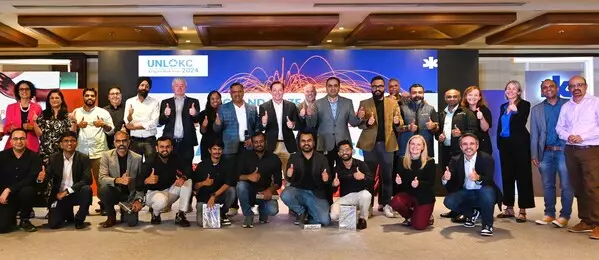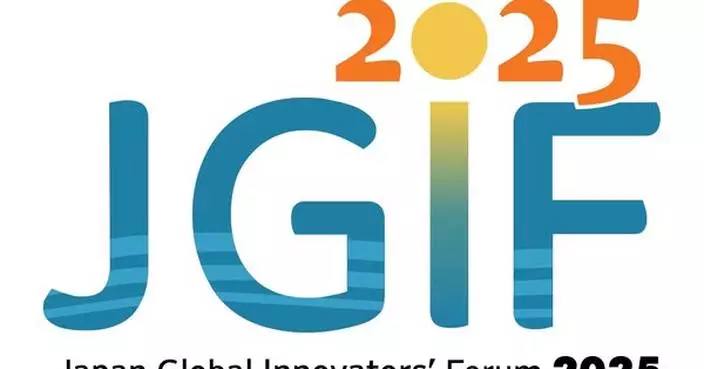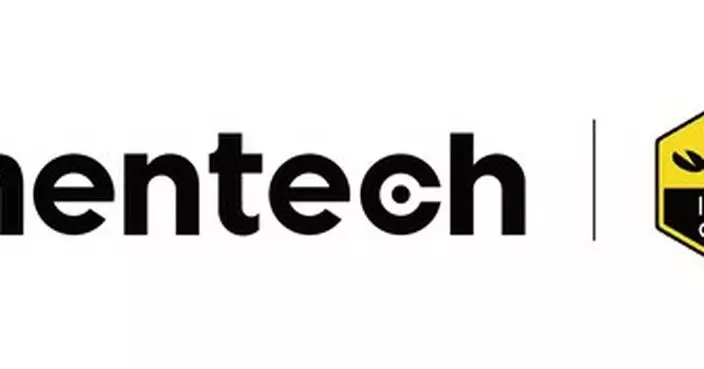Research in npj Precision Oncology highlights multi-cohort training approach and accurate analysis of unseen immunohistochemistry data
SEOUL, South Korea, Dec. 12, 2024 /PRNewswire/ -- Lunit (KRX:328130.KQ), a leading provider of AI-powered solutions for cancer diagnostics and therapeutics, today announced the publication of a new study in npj Precision Oncology detailing the development of its Universal Immunohistochemistry (uIHC) AI model. The study demonstrates how the model excels at analyzing diverse cancer types and IHC stains, including datasets it had never encountered before, due to a novel training approach. Now commercialized as Lunit SCOPE uIHC, the model enables advanced biomarker formation from even singleplex IHC, with subcellular stain localization, continuous intensity scoring, and cell type identification..
Addressing Challenges in IHC Analysis
Immunohistochemistry (IHC) is an essential tool in oncology, enabling pathologists to detect and quantify protein expression which in turn guides decisions for systemic therapy. However, while several AI algorithms exist to assist in scoring IHC images and improving accuracy, current AI models face two major limitations:
These challenges underscore the need for scalable solutions capable of accurate analysis across a wide range of cancer types and immunostains.
uIHC Model Outperforms in Generalization
Lunit's study compared eight deep learning models, including four single-cohort (trained using data from a single stain or cancer type) and four multi-cohort (trained on combined datasets spanning multiple stains and cancer types) approaches, to evaluate their performance on both familiar and unseen datasets. The results validated the uIHC model's ability to generalize across diverse datasets with high accuracy.
Key results include:
These findings highlight the model's robust performance across a wide variety of cancer types and immunostains, including those it had not been trained on.
The uIHC model's ability to generalize across diverse IHC images marks a transformative step in digital pathology. By reducing the dependency on large stain-specific datasets, it enables scalable and efficient biomarker analysis for clinical diagnostics and drug development. This capability is particularly valuable for evaluating new biomarkers associated with novel therapies, addressing a critical bottleneck in precision oncology.
"Our Universal Immunohistochemistry AI model solves a practical bottleneck in development settings—handling unseen cancer types and stains without requiring additional data annotation," said Brandon Suh, CEO of Lunit. "By proving the effectiveness of a multi-cohort training approach, this study shows how AI can be adapted to real-world complexities, delivering both precision and scalability. With the launch of Lunit SCOPE uIHC, we're enabling researchers and clinicians to focus on what truly matters: advancing patient care and accelerating therapeutic innovation."
About Lunit
Founded in 2013, Lunit (KRX:328130.KQ) is a medical AI company on a mission to conquer cancer. We harness AI-powered medical image analytics and AI biomarkers to ensure accurate diagnosis and optimal treatment for each cancer patient. The FDA-cleared Lunit INSIGHT suite for cancer screening serves over 4,500 hospitals and medical institutions across 55+ countries.
Lunit clinical studies have been published in top journals, including the Journal of Clinical Oncology and the Lancet Digital Health, and presented at global conferences such as ASCO and RSNA. In 2024, Lunit acquired Volpara Health Technologies, setting the stage for unparalleled synergy and accuracy, particularly in breast health and screening technologies. Headquartered in Seoul, South Korea, with a network of offices worldwide, Lunit leads the global fight against cancer. Discover more at lunit.io.
** The press release content is from PR Newswire. Bastille Post is not involved in its creation. **

New Lunit Study Demonstrates Universal AI Model for Analysis of Immunohistochemistry Images
Kimberly-Clark Expanding Investments in India
BENGALURU, India, Dec. 26, 2024 /PRNewswire/ -- Kimberly-Clark, a global leader in essential personal and family care products, continues to increase its commitment to India through its Global Digital Technology Center (GDTC) in Bengaluru.
Established in 2018 with an initial investment of $2.5 million, the Bengaluru GDTC has seen remarkable growth, expanding its size by eight times in just five years. The center focuses on key areas and digital capabilities such as Data and Analytics, Artificial Intelligence (AI) including Generative AI, Machine Learning (ML), Cloud Transformation, Global Digital Operations & Automation, Digital Sales and Marketing, and Digital Supply Chain – all of which help drive efficiencies and improve customer experiences. Over the next three years, the GDTC plans to continue its expansion, focusing on advancing AI/ML capabilities and developing innovative digital solutions to boost operational efficiency and customer engagement. These capabilities further enhance Kimberly-Clark's ability to deliver on its global Powering Care strategy – shared earlier this year – and, in turn, strengthen its longstanding commitment to consumer-centricity.
While the Bengaluru GDTC is driving Kimberly-Clark's technological advancements, it's also contributing to India's broader tech and innovation ecosystem. By collaborating with local startups, academic institutions, and industry partners, the center aims to foster cutting-edge solutions.
"Our Bengaluru GDTC is a testament to Kimberly-Clark's deep-rooted commitment to innovation and the immense breadth of Indian talent," said Zack Hicks, Chief Digital and Technology Officer, Kimberly-Clark. "In just five years, the center has evolved into a key growth engine for our digital strategies, delivering AI-powered commercial and supply chain solutions, and pioneering advancements in modern manufacturing. Looking ahead, we remain focused on further investing in India, leveraging the country's outstanding talent and technological expertise to shape the future of Kimberly-Clark and pioneer industry-leading innovation in our core categories."
The integration of data and advanced analytics is at the core of the Bengaluru GDTC's success. By leveraging AI/ML algorithms built on their enterprise data lake, the team is also optimizing sales predictions, refining pricing strategies for e-commerce, and automating routine tasks such as order entry and invoice processing. In 2024, efforts in Gen AI platforms originating from the GDTC improved the employee productivity by up to 25%, and the development of AI-powered sales and revenue analytics drove a 10% improvement in sales execution across regions like Europe, the Middle East, and Africa. These innovations not only streamline operations and reduce costs but also boost accuracy and efficiency.
One of the center's major achievements is the development of Maestro, an AI-powered supply chain orchestration platform that has delivered more than $20 million in global savings for Kimberly-Clark. Another transformative innovation is the Warehouse Automation Platform, which seamlessly integrates warehouse robotics with supply chain systems, reducing new solution deployment timelines from 18 months to 4 months, and generating savings exceeding $50 million. The GDTC's collaborative efforts have also resulted in the creation of Procuree 3.0, an inhouse Source-to-Pay chatbot powered by Generative AI that enhances Kimberly-Clark's procurement processes across 42 countries and 14 languages.
Recently, the GDTC held its third Digital Hackathon under the theme 'UNLOKC 2024,' bringing together Kimberly-Clark employees and technology partners to develop digital solutions that contribute to business opportunities in areas such as supply chain, marketing, and finance. Over 130 innovative ideas were submitted within four weeks, and the 7 project finalists were awarded by the Digital Technology global leadership team during the Hackathon's final event in Bangalore. These finalists will receive support to develop their projects in the near future.
As Kimberly-Clark's largest technology hub, the Bengaluru GDTC is positioned to remain a critical driver of growth and innovation on a global scale. With plans to continue attracting top-tier talent and expanding its technological capabilities, the center is set to play a pivotal role in shaping the future of the company and its global tech ecosystem.
About Kimberly-Clark:
Kimberly-Clark (NYSE: KMB) and its trusted brands are an indispensable part of life for people in more than 175 countries. Fueled by ingenuity, creativity, and an understanding of people's most essential needs, we create products that help individuals experience more of what's important to them. Our portfolio of brands, including Huggies, Kleenex, Scott, Kotex, Cottonelle, Poise, Depend, Andrex, Pull-Ups, GoodNites, Intimus, Plenitud, Sweety, Softex, Viva and WypAll, hold No. 1 or No. 2 share positions in approximately 70 countries. We use sustainable practices that support a healthy planet, build strong communities, and ensure our business thrives for decades to come. We are proud to be recognized as one of the World's Most Ethical Companies(R) by Ethisphere for the sixth year in a row and one of Fortune's Most Innovative Companies in America in 2024. To keep up with the latest news and to learn more about the company's 150-year history of innovation, visit the Kimberly-Clark website.
** The press release content is from PR Newswire. Bastille Post is not involved in its creation. **

India's Thriving Tech Hub Fuels Kimberly-Clark's Digital Transformation











